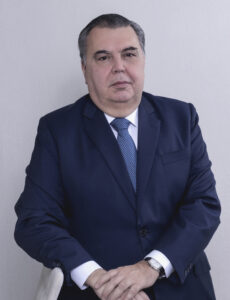Thomaz Bastos, Waisberg and Kurzweil Advogados > Sao Paulo, Brazil > Firm Profile
Thomaz Bastos, Waisberg and Kurzweil Advogados Offices

Av. Brigadeiro Faria Lima, 3311
13º andar - Itaim Bibi
São Paulo – SP - Brasil – CEP 04538-133
Brazil
Thomaz Bastos, Waisberg and Kurzweil Advogados > The Legal 500 Rankings
Brazil > Restructuring and insolvency Tier 1
A leading force in the restructuring and insolvency market, Thomaz Bastos, Waisberg and Kurzweil Advogados is noted for its ‘technical knowledge’ and for ’converging the interests of its clients with the best market alternatives’. The versatile player is regularly involved in Brazil’s largest insolvencies and restructurings, where it represents a broad mix of debtors, creditors and investors. In the past year, the practice handled $10bn worth of restructuring and insolvency work, including support in judicial and non-judicial reorganisation proceedings, distressed M&A, cross-border restructurings and DIP financings. The firm fields a highly experienced team, including founding partners Joel Luís Thomaz Bastos , Bruno Kurzweil de Oliveira and Ivo Waisberg, who handle contentious and non-contentious matters in this space. They are backed by several ‘standout’ individuals, such as Gilberto Gornati, whose ‘extensive knowledge enables him to guide clients closely’ throughout insolvency proceedings, and Adriana Dias de Oliveira. Clients also rate the ‘dedicated and helpful’ associate Luiza Serodio Giannotti.
, Bruno Kurzweil de Oliveira and Ivo Waisberg, who handle contentious and non-contentious matters in this space. They are backed by several ‘standout’ individuals, such as Gilberto Gornati, whose ‘extensive knowledge enables him to guide clients closely’ throughout insolvency proceedings, and Adriana Dias de Oliveira. Clients also rate the ‘dedicated and helpful’ associate Luiza Serodio Giannotti.
Practice head(s):
Joel Luís Thomaz Bastos; Ivo Waisberg; Bruno Kurzweil de Oliveira
Testimonials
‘The team has differentiated technical knowledge and makes alternative recommendations, converging the interests of its clients with the best market alternatives.’
‘Among the individuals who stand out, we can mention Gilberto Gornati. His extensive knowledge enables him to guide clients closely. Another individual who stands out is Luiza Serodio Giannotti, a dedicated and helpful professional, with excellent knowledge.’
Key clients
Orizon Meio Ambiente
Investimento e Participações em Infraestrutura
USJ – Açúcar e Álcool
Green Way I Fundo de Investimentos em Direitos Creditórios Não Padronizado
Amerra Group
Bambui Group
Moneda Funds, Capital Funds and Pimco Funds
Saraiva e Siciliano
Itaiquara Group
Agropecuária Nova Vida
Abengoa Group
Vista Alegre Group
Heber Participações
Clealco – Açúcar e Álcool
Banco BTG Pactual
Maksoud Hotels
4Asset Fundo de Investimento
OceanAir Linhas Aéreas
Work highlights
- Advising on the restructuring proceeding of the Virgolino de Oliveira group.
- Assisting the bondholders (Moneda Alturas II Fondo De Invesion, Capital World Bond Fund, Pimco Dynamic Credit, Mortgage Income Fund) in pursuing its credits against the Constellation Oil Services Holding and its subsidiaries.
- Assisting Fundo de Investimento em Direitos Creditórios Não Padronizados Alternative Assests I in pursuing a claim against Banco Cruzeirdo Sul, a Brazilian bank that is going through a liquidation procedure.
Brazil > Dispute Resolution: Litigation Tier 6
At Thomaz Bastos, Waisberg and Kurzweil Advogados, the ‘very well prepared‘ litigation team handles a mix of commercial, corporate, civil and antitrust disputes for a varied client roster active in the construction, agribusiness, energy, banking and retail sectors. With over 20 years’ experience in judicial disputes involving IP rights, consumer and electoral law, Joel Luís Thomaz Bastos coordinates the group with three other practitioners: Ivo Waisberg, who acts for companies and banks in dispute resolution; Ricardo Pomeranc Matsumoto, a contact for administrative cases involving the Brazilian Central Bank; and recently promoted partner Bárbara Pessoa Ramos, who specialises in judicial reorganisation and bankruptcy matters. Carlos Teixeira Leite Filho, who has a strong background as a judge, is another name to note.
coordinates the group with three other practitioners: Ivo Waisberg, who acts for companies and banks in dispute resolution; Ricardo Pomeranc Matsumoto, a contact for administrative cases involving the Brazilian Central Bank; and recently promoted partner Bárbara Pessoa Ramos, who specialises in judicial reorganisation and bankruptcy matters. Carlos Teixeira Leite Filho, who has a strong background as a judge, is another name to note. Practice head(s):
Joel Luís Thomaz Bastos; Ivo Waisberg; Ricardo Pomeranc Matsumoto; Bárbara Pessoa Ramos
Testimonials
‘Strategic profile for dealing with complex corporate litigation.’
‘Ivo Waisberg and Bárbara Pessoa Ramos are recommended.’
‘The team is very well prepared, has impeccable knowledge and provides prompt advice.’
Key clients
CFL Participações
Banco BTG Pactual
Prisma Capital
Santo Antônio Energia
Mossi & Ghisolfi Internacional
Indorama Ventures Polímeros
Latache Capital
Fiagril
RB Capital
Banco Santander
AMERRA CAPITAL
Grupo METHA
Grupo Aralco
Stone SCD
Grupo Energy
Grupo Geneseas
MGC Capital
Bonasa Alimentos
Grupo Omar Maksoud
Braswey Indústria e Comércio
Work highlights
- Representing an individual in an action for damages against Braskem’s parent companies due to losses caused by unlawful acts involving abuse of power and control uncovered by Operation Carwash.
- Defending More Invest Gestora de Recursos against a claim for alleged losses due to the mismanagement of investments suffered by UEG Araucaria.
- Assisting CFL Participações in a corporate claim related to the distribution of dividends by the counterparty in discordance with its by-laws, which caused the client significant financial losses.
Brazil > Dispute Resolution: Arbitration Tier 7
Best known for its capabilities in restructuring and insolvency matters, Thomaz Bastos, Waisberg and Kurzweil Advogados' dispute resolution team is active in arbitration proceedings arising from commercial, corporate and contractual disputes, with a particular emphasis on the energy, agribusiness and financial services sectors. These are key sector focuses for Ivo Waisberg and Ricardo Pomeranc Matsumoto, who jointly head the department with Joel Luís Thomaz Bastos , a specialist in corporate and banking-related arbitration. Senior associate Ana Cláudia de Olivera Rennó has acted as counsel in numerous cases.
, a specialist in corporate and banking-related arbitration. Senior associate Ana Cláudia de Olivera Rennó has acted as counsel in numerous cases. Practice head(s):
Ivo Waisberg; Joel Luís Thomaz Bastos; Ricardo Pomeranc Matsumoto
Testimonials
‘What makes TWK unique is the vast experience of partner Ivo Waisberg and his accurate strategies in arbitration.’
‘Partner Ivo Waisberg is an outstanding lawyer in arbitration. He has an ability to foresee the strategies that will succeed, in addition to having unparalleled agility and precision.’
‘The partners – in particular, Ivo Waisberg and Bruno Kurzweil – are excellent strategists and, therefore, manage to combine technique with efficient sponsorship of their clients’ interests. The teams are well integrated, they work very well.’
Thomaz Bastos, Waisberg and Kurzweil Advogados > Firm Profile
Thomaz Bastos, Waisberg, Kurzweil Advogados is a legal boutique firm, specializing in debt restructuring and insolvency, complex litigation and arbitration, and corporate and financial transactions. Formed by the association among partners Joel Luís Thomaz Bastos, Ivo Waisberg and Bruno Kurzweil, and a remarkable and multidisciplinary team, the firm has acted in the most important and sophisticated insolvency cases in Brazil, always seeking suitable solutions for its clients.
Opened in October 2016, the firm handles in- and out-of-court restructurings, representing clients in litigation and arbitration. The partners of the firm have led more than 70 debt restructuring procedures or negotiations.
TWK has been recognized by Chamber and Partners (band 1), Leaders League (leading 1), The Legal 500 (Tier 1), in addition to ranking in the top tiers of numerous national publications.
Practice areas
Restructuring, bankruptcy, and insolvency: As one of the few prominent law firms that represent both debtors and creditors, as well as investors in insolvency and debt restructuring cases, the firm provides professional advice to its clients in all aspects: from the initial discussions and decisions on the strategy to be adopted in each case to the actual preparation and pursuit of the legal steps required to implement it.
Complex litigation and arbitration: The firm advises companies and individuals in matters concerning highly complex preventive, litigation and arbitration matters involving several different fields of business and civil law.
Main Contacts
| Department | Name | Telephone | |
|---|---|---|---|
| Restructuring, Bankruptcy, and Insolvency | Joel Luís Thomaz Bastos | joel@twk.com.br | |
| Restructuring, Bankruptcy, and Insolvency, Arbitration | Ivo Waisberg | ivo@twk.com.br | |
| Restructuring, Bankruptcy, and Insolvency | Bruno Kurzweil de Oliveira | bruno@twk.com.br | |
| Restructuring, Bankruptcy, and Insolvency | Gilberto Gornati | gilberto@twk.com.br | |
| Restructuring, Bankruptcy, and Insolvency | Herbert Morgenstern Kugler | herbert@twk.com.br | |
| Complex Litigation and Arbitration | Ricardo Pomeranc Matsumoto | ricardo@twk.com.br | |
| Restructuring, Bankruptcy, and Insolvency | Adriana Maria Cruz Dias de Oliveira | adriana@twk.com.br | |
| Complex Litigation and Arbitration | Carlos Teixeira Leite Filho. | carlos@twk.com.br | |
| Complex Litigation | Bárbara Pessoa Ramos | barbara@twk.com.br | |
| Restructuring, Bankruptcy, and Insolvency | Lucas Rodrigues do Carmo | lucas@twk.com.br |
Lawyer Profiles
| Photo | Name | Position | Profile |
|---|---|---|---|

|
Adriana Dias de Oliveira | Partner | View Profile |

|
Gilberto Gornati | Partner | View Profile |

|
Bruno Kurzweil de Oliveira | Partner | View Profile |

|
Herbert Morgenstern Kugler | Partner | View Profile |

|
Bárbara Pessoa Ramos | Partner | View Profile |

|
Ricardo Pomeranc Matsumoto | Partner | View Profile |

|
Lucas Rodrigues do Carmo | Partner | View Profile |

|
Carlos Teixeira Leite Filho | Partner | View Profile |

|
Joel Luís Thomaz Bastos | Partner | View Profile |

|
Ivo Waisberg | Partner | View Profile |
Staff Figures
Other lawyers : 46 Total staff : 73Languages
EnglishOther
Contacts : 10- Restructuring and insolvency
Top Tier Firm Rankings
- Dispute Resolution: Litigation
